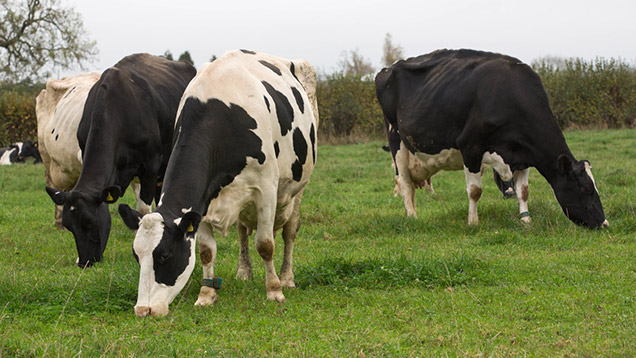Scientists create GM cows ‘more resistant to TB’
 ©Tim Scrivener
©Tim Scrivener Scientists claim they have created genetically engineered cows more resistant to bovine TB.
A team of researchers from China inserted a protective mouse gene, called SP110, into the genome of Holstein-Friesian cattle to create animals more resistant to TB.
To estimate their ability to resist the disease, researchers inserted the Mycobacterium bovis bacterium, which causes TB, into the immune system of the cows.
See also: Cull zone farm TB-free for first time in 11 years
Three randomly selected transgenic cattle and three experimental control cattle, derived from the same cells but without the mouse gene, were infected with M bovis.
The animals were killed 16 weeks later and analysis of organs, such as lungs, spleen and liver, showed the protective mouse gene “significantly reduced” the disease.
“The SP110 transgenic cattle could control the growth and multiplication of M bovis… and efficiently resist the low dose of M bovis transmitted from tuberculous cattle in nature,” said the scientists.
They also found that offspring of the transgenic cattle could inherit the gene and maintain TB resistance.
The scientific paper was published in the journal Proceedings of the National Academies of Science (PNAS).
Commenting on the research, Bruce Whitelaw, professor of animal biotechnology at the Roslin Institute, Edinburgh University, said the paper “promoted optimism” about providing engineered cattle with reduced disease severity.
Prof Whitelaw added: “In the UK there has been the controversial policy of culling badgers – this is the setting for discussion on the benefits of cattle with enhanced resilience to bovine TB.”
Prof Heiner Niemann, head of the institute of farm animal genetics at Friedrich-Loeffler-Institut, Germany, said the study showed how genomic tools could be used to create animals with enhanced disease resistance.
“These findings are another step towards the creation of disease resistant livestock animals based on advanced genetic tools,” Prof Niemann added.
“Whether this approach protects cows against TB infection when exposed to high doses of the pathogen remains to be determined.
“The present results would not yet support a decision to stop targeting badgers as the main vector of the pathogen.
“Nevertheless, results pave the way towards developing new strategies for breeding disease resistant farm animals, thereby avoiding in the future mass culling of afflicted farm animals and detrimental economical effects on animal production.”
